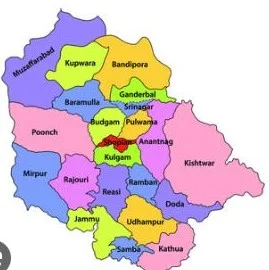(Kashmir Rechords News Desk)
The demand for a separate Jammu state has been raised intermittently over the years. It notably resurfaced during the 2019 reorganization of the former Jammu and Kashmir state, when Ladakh was granted Union Territory status, fulfilling a long-standing demand of its people. However, the call for a separate Jammu state, much like the Kashmiri Pandits’ demand for a homeland with Union Territory status, went unmet. Concerns about Jammu’s alleged political marginalization particularly since 1979, have been central to this debate. The demand for a separate Jammu state was first voiced by Jan Sangh ideologue Balraj Madhok, who advocated for Union Territory status for border areas such as Teetwal and Uri, alongside the division of Ladakh.
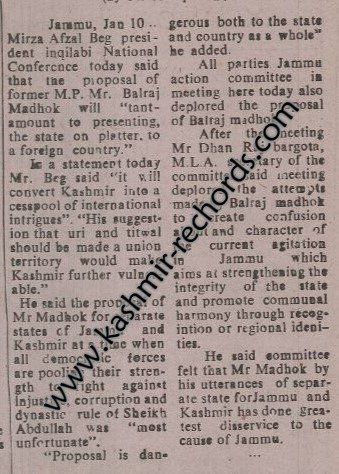
Over time, the issue has periodically emerged as a significant election theme. Various political parties have included the demand for a separate Jammu state in their manifestos, feeling that the region has been consistently sidelined by what they term “Kashmiri leadership.” Yet, even with this being a popular electoral issue, it has not gained widespread traction or acceptance, even within the top leadership of the BJP. For example, in September 1990, former Prime Minister Atal Bihari Vajpayee, during his visit to Jammu, opposed the idea of a separate Jammu state, though he supported Union Territory status for Ladakh. His stance, as a respected statesman and intellectual, was viewed as a decisive one, likely backed by careful political consideration.
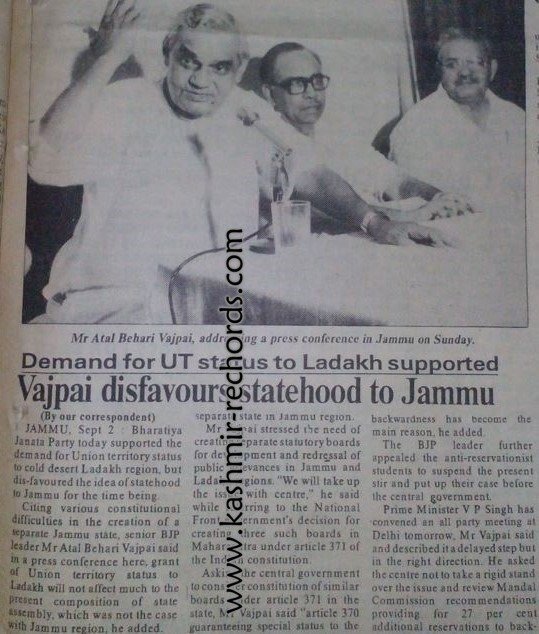
The demand for Jammu statehood has also seen attempts at political mobilization. Prof. Virender Gupta of Jammu University founded the Jammu State Morcha, later renamed the Jammu Mukti Morcha, with the explicit aim of creating a separate Jammu state. Despite his efforts and those of his supporters, the movement struggled to gain electoral success, with Gupta’s party failing to secure a single assembly seat, in contrast to the BJP, which has focused on addressing the issue of discrimination without advocating for full statehood.
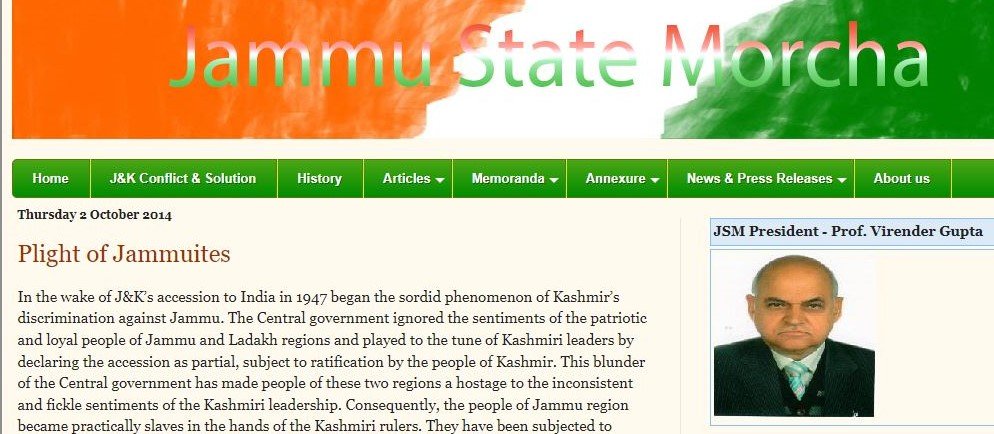
Historically, Jammu’s political grievances came to the forefront during the 1966 Jammu Students’ agitation, which also raised the issue of discrimination. However, the demand for a separate Jammu state was suppressed, and the movement eventually lost momentum. Kashmir’s politicians on the other hand have always been telling that there was no discrimination with Jammu as it was merely a poll plank to woo voters and befool people of the region.
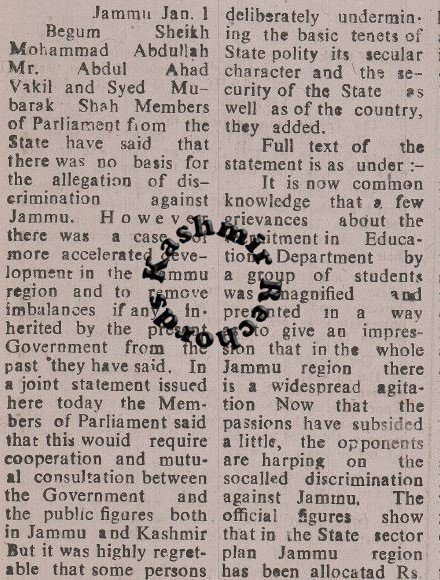
In contrast, Ladakh, which was granted Union Territory status in 2019, appears to have resolved some of its historical grievances. However, many Ladakhi leaders in past have stated that their region did not experience the same level of political discrimination as Jammu. Nevertheless, some sections of Ladakh’s population are now reportedly dissatisfied with their Union Territory status, with concerns that extend beyond their prior claims of discrimination.
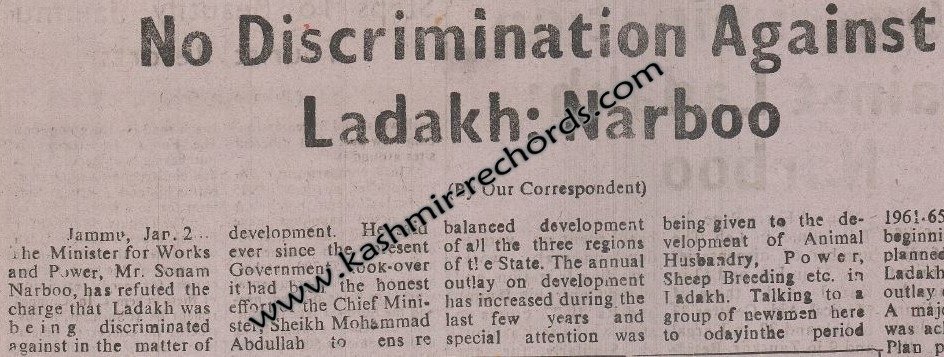
As the September-October elections of 2024 underscore the deepening political divide, with the BJP consolidating its grip in Jammu, the demand for a separate Jammu state again resurfaced. However, the fact that a statesman of Atal Bihari Vajpayee’s stature publicly opposed the demand in 1990 remains a significant factor. His opposition likely stemmed from strong political and strategic convictions, which continue to influence the BJP’s position on the matter.
The debate surrounding Jammu’s political future continues to be shaped by both historical grievances and present-day electoral dynamics. While calls for statehood persist, they face substantial political and ideological challenges.
